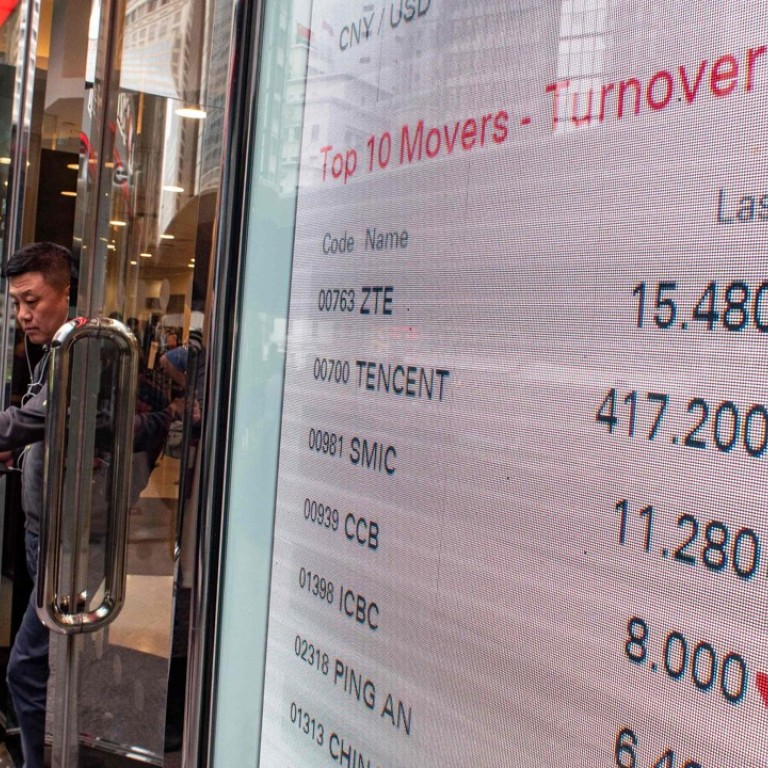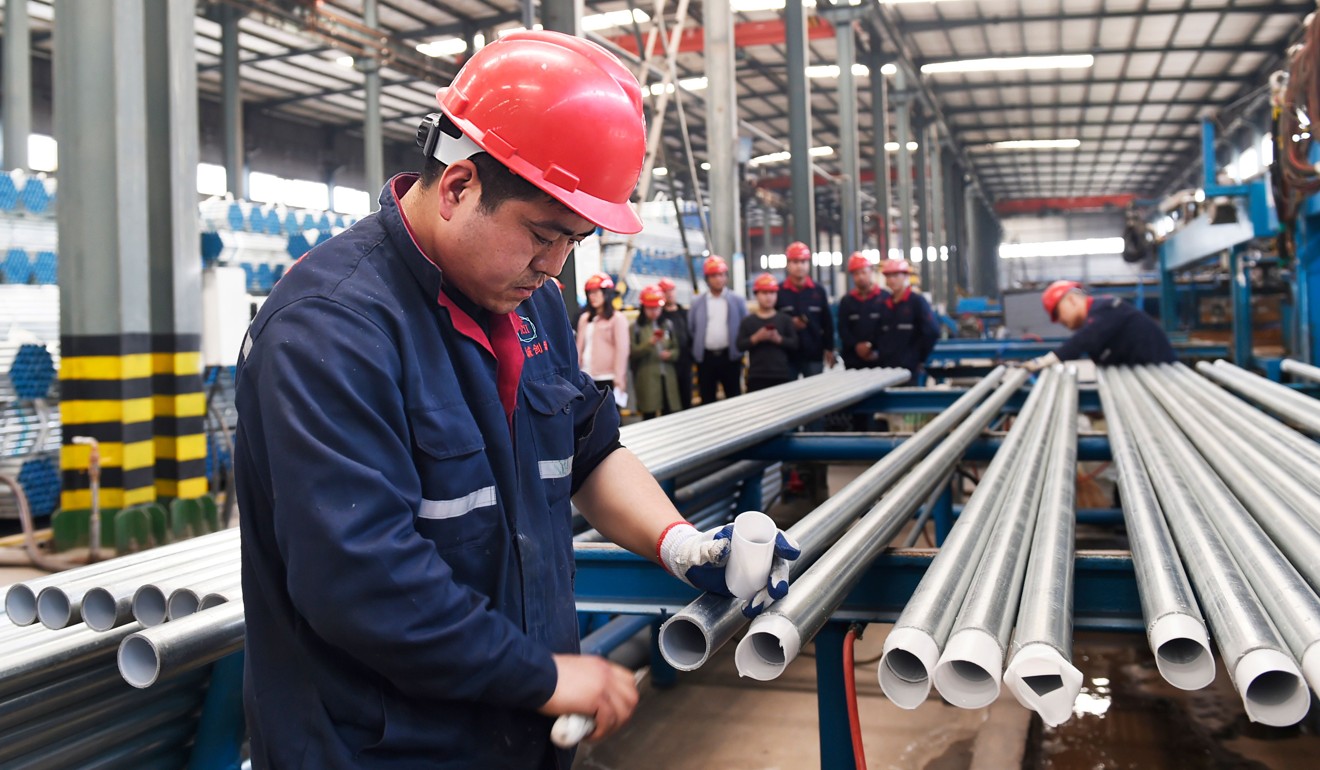
Hong Kong stocks slip on renewed trade war fears, weaker China manufacturing data
The mainland’s manufacturing sector has grown at the slowest pace in eight months in July as Beijing shifts its focus to support economic growth
Hong Kong stocks declined for a third day on Wednesday on the back of renewed trade war fears, weaker China manufacturing data and the country’s reiterated determination to curb home prices at a top leadership meeting.
The Hang Seng Index fell 0.9 per cent, or 242.27 points, to 28,340.74. The Hang Seng China Enterprises Index dropped 0.5 per cent, or 51.69 points, to 10,973.04. In mainland China, the Shanghai Composite Index slid 1.8 per cent to 2,824.53.
“People are turning cautious because conflicting messages about the trade war have caused confusion,” said Stanley Chan, director of research at Emperor Securities.
“The upcoming earnings releases in the rest of this month are likely to provide some support, and the Hang Seng Index will probably swing between the range of 27,800 to 29,000 in August,” Chan said.
The Trump administration may impose a 25 per cent tariff on imported Chinese goods worth US$200 billion, up from the 10 per cent that it had put forward last month, according to a report by Reuters citing an anonymous source.
On top of trade tensions, data released on Wednesday showed that China’s manufacturing sector had expanded at the slowest pace in eight months in July, with the Caixin/Markit Manufacturing Purchasing Managers’ index (PMI) sliding to 50.8 in July from 51.0 in June. New export orders contracted for the fourth straight month, recording the biggest slump in 25 months.
A meeting at China’s Politburo, the country’s top decision-making body, on Tuesday also weighed on market sentiments. The leadership vowed to continue curbing home prices and keep controls on the sector in place, while signalling a shift of focus from cutting debt to supporting growth.

The upcoming earnings releases in the rest of this month are likely to provide some support, and the Hang Seng Index will probably swing between the range of 27,800 to 29,000 in August
Mainland property developers led the decline. Sunac China Holdings, the country’s fourth largest developer by contracted sales, slumped 9.2 per cent to HK$23.15. Country Garden Holdings, China’s top developer, slid 6.6 per cent to HK$11.36. China Evergrande Group was down 5.1 per cent at HK$20.55.
Banks and insurers also fell. AIA Group shed 1.8 per cent to HK$67.30, Ping An Insurance Group was down 0.6 per cent at HK$72.35, and New China Life Insurance dropped 1.9 per cent to HK$35.40.
Macau casino operators lost ground, despite the 10.3 per cent jump in year-on-year revenue recorded in July, according to figures from Macau’s Gaming Inspection and Coordination bureau on Wednesday. Sands China dropped 1.5 per cent to HK$39.80, and Wynn Macau was down 0.7 per cent at HK$22.95.
Ascletis Pharma, the first biotechnology firm listed in Hong Kong following listing reforms, swang between positive and negative territories before closing unchanged at HK$14 on its first day of trading.

